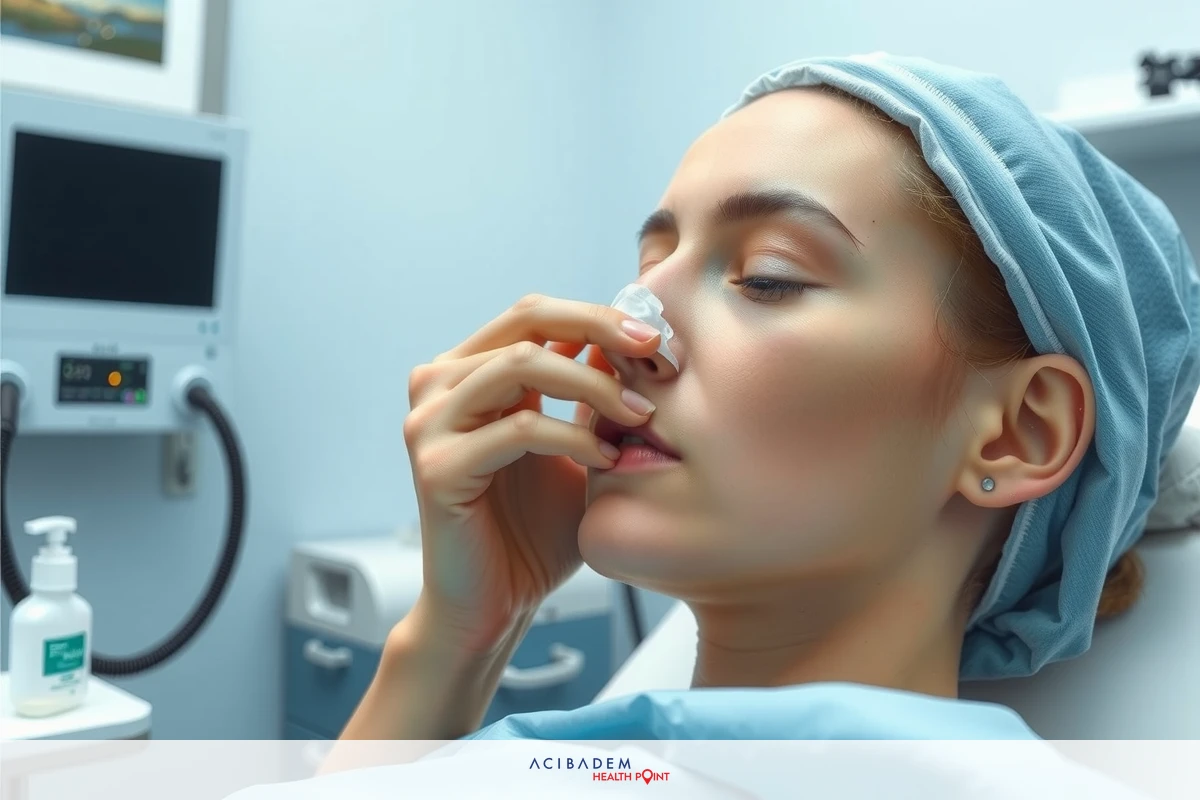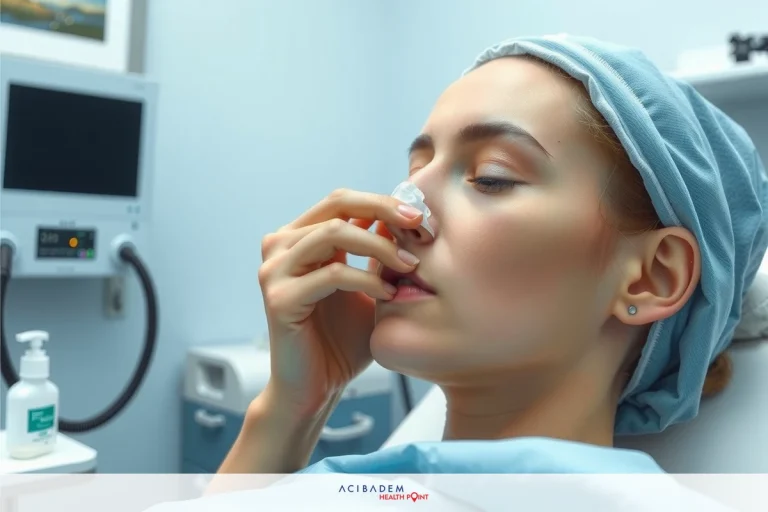Can I Blow My Nose After Rhinoplasty?
Can I Blow My Nose After Rhinoplasty? Rhinoplasty, or nose surgery, often involves reshaping the bone, cartilage, and tissues of the nose to improve its function or appearance. Post-operative care is crucial in ensuring a successful recovery and achieving desired results. One common inquiry among patients is when they can safely begin to blow their nose following surgery.
There are specific guidelines and precautions that need to be followed when blowing your nose after rhinoplasty. It’s important to understand that the healing process varies from person to person, so timelines may differ. This article offers an overview of general recommendations for post-operative care, particularly for nose blowing, and provides useful tips for a smooth recovery period. Remember, always consult with your surgeon or medical professional for personalized advice.
When Can I Start
After undergoing rhinoplasty, you may feel the urge to blow your nose due to the natural buildup of mucus and blood. It is critical to exercise caution during the early stages of recovery. Blowing your nose too soon after surgery may disrupt the healing process and lead to complications such as infection or damage to the surgical site. Generally, surgeons advise against blowing your nose for at least one week following rhinoplasty, but this timeline can vary depending on the specifics of your procedure and individual healing rate.The first few days after your rhinoplasty are crucial in post-operative care. During this time, it is best to avoid blowing your nose altogether. Any forceful action could potentially shift the newly adjusted nasal structures and interfere with the desired outcome. Instead of blowing your nose, you might find relief by gently wiping away any discharge with a soft tissue or using a saline rinse as directed by your doctor. Remember that each patient’s recovery journey is unique, so it’s essential to follow your surgeon’s specific instructions regarding post-operative care.
As you move into the second week following your rhinoplasty, you may start feeling more comfortable and notice a decrease in swelling and congestion. This is typically when patients can begin to cautiously blow their nose again. It’s important not to rush this step in the recovery process. If you feel the need to blow your nose, do so gently and carefully to avoid causing any harm to the delicate nasal tissues that are still healing. It’s also important to note that while resuming normal activities like nose blowing might seem like a small step towards recovery, it should still be approached with caution and patience.
Precautions
As the recovery process after a rhinoplasty progresses, you may feel the need to blow your nose. This is a natural part of the healing journey, as your body may produce more mucus than usual due to the surgery. It’s important to approach this process with caution to avoid any potential complications or discomfort.
Here are some key precautions to consider when blowing your nose during the recovery period:
1. Wait for the right time: As mentioned earlier, it’s usually advised not to blow your nose for at least a week post-surgery. Your surgeon will provide a more personalized timeline based on your individual healing progress.
- Gently does it: When you do start blowing your nose again, make sure to do so gently. Forceful blowing can disrupt the healing tissues and cause unnecessary complications.
- Cleanliness counts: Always ensure your hands are clean before touching your nose. This helps prevent any potential infection that could hinder recovery.
- Avoid one-sided blowing: Try not to blow one nostril at a time, as this can increase pressure in the nasal cavity and lead to discomfort or injury.

A woman in a medical setting appears to be undergoing a medical procedure. She’s lying on an examination table and has her eyes closed, possibly experiencing discomfort or stress from the situation. Her hands are at her mouth as if she is holding it shut. The environment suggests a clinical or hospital context with medical equipment and supplies around her. - Stay hydrated: Keeping well-hydrated can help thin out mucus, making it easier to expel without forceful blowing.
- Use a humidifier: Using a humidifier can help keep your nasal passages moist and soothe any dryness or irritation.
Remember, while these precautions can guide you on safe practices for nose blowing after rhinoplasty, always consult with your healthcare provider for personalized advice.
Tips for Gentle Nose Blowing
After your rhinoplasty procedure, it’s crucial to modify some of your routine activities to aid recovery, including how you blow your nose. You will need to be more cautious and gentle during this process to avoid any undue strain on the healing nasal tissues. Here are some techniques and tips to ensure gentle nose blowing that minimizes potential risks or complications.
In the early stages of recovery, when you feel the need to clear your nasal passages, avoid the instinct to blow forcefully. Instead, gently breathe out through your nose while keeping your mouth open. This method can help clear mucus without putting pressure on the delicate internal structures of your nose. Also, it’s advisable to blow both nostrils simultaneously rather than one at a time. Blowing one nostril at a time can create more pressure inside the nasal cavity and potentially disrupt the healing process.
Another useful tip is to use a saline nasal spray or rinse as directed by your healthcare provider. These products can help keep your nasal passages moist and make it easier to expel mucus without forceful blowing. Staying well-hydrated can naturally thin out mucus and ease its passage. Consider adding a humidifier in your living space too, especially during dry weather, as it can help soothe any dryness or irritation in your nasal passages.
Patience is key during this process. It might take some time before you can return to blowing your nose as you did before surgery. Keep in mind that being gentle and patient with yourself during recovery isn’t just about comfort; it’s about ensuring the best possible outcome from your rhinoplasty surgery. Always consult with your healthcare provider if you have concerns or questions about post-operative care after rhinoplasty.
Frequently Asked Questions
When can I start blowing my nose after rhinoplasty?
The recommended timeline for safely blowing your nose after rhinoplasty varies but generally, it is advised to wait at least one week before attempting to blow your nose. Every patient's recovery process is different, so it's crucial to follow your surgeon's specific instructions.
Can I blow my nose forcefully if I feel congested?
No, forceful blowing of the nose should be avoided during the initial stages of recovery after rhinoplasty. It can put unnecessary strain on the healing nasal tissues and potentially compromise the surgical results. Instead, try using a saline nasal spray or rinse to help alleviate congestion.
What if I accidentally blow my nose too soon after rhinoplasty?
If you accidentally blow your nose too soon after rhinoplasty or experience any discomfort or bleeding, contact your surgeon immediately. They will be able to provide you with guidance and evaluate if any damage has occurred.
Are there any alternative methods to clear my nasal passages without blowing my nose?
Yes, there are alternative methods to clear your nasal passages without blowing your nose forcefully. You can try using a soft tissue to gently wipe away any discharge or use a saline rinse as directed by your surgeon. These methods can help keep your nasal passages clear without risking any harm to the healing tissues.
How long does it take for the swelling and congestion to subside after rhinoplasty?
Swelling and congestion after rhinoplasty can vary from person to person. In general, you can expect some level of swelling and congestion for several weeks following the surgery. Significant improvement is typically seen within the first few weeks, and the majority of swelling should subside within a few months. It's important to be patient and follow your surgeon's post-operative care instructions for optimal healing.











